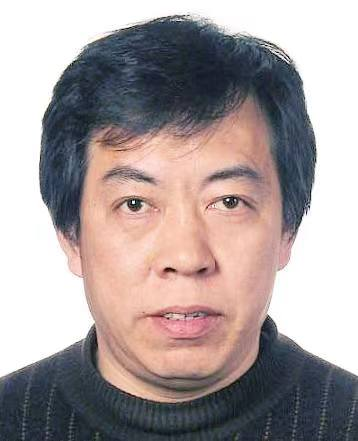

教师基本信息
姓名:李博
职称:教授
电子邮箱:bool@ynu.eu.cn
办公地点:实训楼
办公电话:0871-65933840
研究方向
入侵生态学、植物生态学、生态系统生态学
个人简介
主要经历
1980年-1984年 华中师范大学,本科
1984年-1986年 华中师范大学,硕士研究生
1992年-1995年 University of East Anglia, Norwich, UK,博士研究生
1995年-1996年 武汉大学,博士后
1996年-1998年 日本北海道大学,JSPS特别研究员
1998年-2000年 日本国立农业研究中心,STA Fellow
2000年-2021年 复旦大学,特聘教授
2021年-现在 复旦大学,东陆特聘教授
主要学术兼职
教育部自然保护与环境生态类专业教学指导委员会委员
国务院生态学科评议组成员
中国生态学会理事
主要科研项目
1)NSFC-云南联合基金:外来有害植物美洲商陆入侵成灾及对乡土药用植物商陆影响的机理研究(U2102218),2022/01-2025/12,286.8万元(直接经费:239)
2)国家自然科学基金(中德合作重点项目):植物入侵过程中防御的进化(31961133028),2020/01-2022/12,在研。
3)国家自然科学基金(重点项目):植物入侵对我国滨海盐沼湿地植被及其相关碳过程影响的地理格局与预测(41630528),2017/01-2021/12,已结题。
4)国家自然科学基金(重点项目):互花米草与土著生态系统中土壤生物主要功能群的相互作用及其群落与生态系统水平的后果(30930019),2010/01-2013/12,已结题。
5)科技部973计划课题:湿地生态完整性对围填海的响应和生物多样性保育(2013CB430404),2013/01-2017/12,已结题。
6)科技部973计划课题:湿地系统水生态功能退化及修复机理(2006CB403305),2006/10-2010/09,已结题。
主要获奖情况
1)2019年:上海市自然科学奖一等奖,外来植物互花米草入侵的生态环境影响与机制,排名第一
2)2018年:上海市科技进步二等奖,绿化病虫害精准化绿色防控关键技术及应用,排名第六
3)2017年:上海市科技进步二等奖,果蔬化学农药生态替代技术研发与集成应用,排名第五
4)2013年:教育部自然科学奖二等奖,互花米草入侵长江河口盐沼湿地的机制与生态系统影响,排名第一
5)2013年:上海市科技进步奖三等奖,城市入侵害虫悬铃木方翅网蝽防治基础理论及关键技术集成创新与推广,排名第二
6)2006年:上海市科技进步二等奖,上海九段沙湿地自然保护区科学考察与总体规划,排名第三
授课情况
种群生态学、入侵生态学、生态系统生态学、生物入侵与全球变化
招生专业
生态学、植物学
代表性论文和论著
1. Zhang X, Xiao XM, Qiu SY, Xu X, Wang XX, Chang Q, Wu JH & Li B*. 2022. Quantifying latitudinal variation in land surface phenology of Spartina alterniflora saltmarsh across coastal wetlands in China by Landsat 7/8 and Sentinel-2 images. Remote Sensing of Environment, 269: 112810.
2. Wang XX, Xiao XM, Xu X, Zou ZH, Chen BQ, Qin YW, Zhang X, Liu DY, Pan LH & Li B*. 2021. Rebound in China’s coastal wetlands following conservation and restoration. Nature Sustainability, 4: 1076–1083.
3. Ju RT, Li X, Jiang JJ, Wu JH, Liu JG, Strong D & Li B*. 2020. Emerging risks of non-native species escapes from aquaculture: call for policy improvements in China and other developing countries. Journal of Applied Ecology, 57: 85–90.
4. Qiu SY, Liu SS, Wei SJ, Cui XH, Nie M, Huang JX, He Q, Ju RT & Li B*. 2020. Changes in multiple environmental factors additively enhance the dominance of an exotic plant with a novel trade-off pattern. Journal of Ecology, 108: 1989–1999.
5. Wan NF, Zheng XR, Fu LW, Pødenphant Kiær L, Zhang ZJ, Chaplin-Kramer R, Dainese M, Tan JQ, Qiu SY, Hu YQ, Tang WD, Nie M, Ju RT, Deng JY, Jiang JX, Cai YM & Li B*. 2020. Global synthesis of effects of plant species diversity on trophic groups and interactions. Nature Plants,6: 503-510.
6. Wang XX, Zou ZH, Dong JW, Qin YW, Doughty RB, Menarguez MA, Chen BQ, Wang JB, Ye H, Ma J, Zhong QY, Zhao B & Li B*. 2020c. Gainers and losers of surface and terrestrial water resources in China during 1989-2016. Nature Communications, 11: 3471.
7. Xu X, Liu YZ, Zhou CH, Pan LH, Fang CM, Nie M & Li B*. 2020. Human eutrophication drives biogeographic saltmarsh productivity patterns in China. Ecological Applications, 30: e02045.
8. Zhang X, Xiao XM*, Wang XX, Chen BQ, Wang J, Ma J, Zhao B & Li B*. 2020. Quantifying expansion and removal of Spartina alterniflora on Chongming island, China, using time series Landsat images during 1995-2018. Remote Sensing of Environment, 247: 111916
9. Qiu SY, Xu X, Liu SS, Liu WW, Liu J, Nie M, Shi FC, Zhang YH, Weiner J & Li B. 2018. Latitudinal pattern of flowering synchrony in an invasive wind-pollinated plant. Proceedings of The Royal Society-Biological Sciences, 285: 1884
10. Wan NF, Cai YM, Shen YJ, Ji XY, Wu XW, Zheng XR, Cheng W, Li J, Jiang YP, Chen X, Weiner J, Jiang JX, Nie M, Ju RT, Yuan T, Tang JJ, Tian WD, Zhang H & Li B*. 2018. Increasing plant diversity with border crops reduces insecticide use and increases crop yield in urban agriculture. eLife, 7: e35103.
11. Yang Q, Wei SJ, Shang L, Carrillo J, Gabler CA , Nijjer S, Li B* & Siemann E. 2015. Mycorrhizal associations of an invasive tree are enhanced by both genetic and environmental mechanisms. Ecography, 38: 1112-1118.
12. Li H, Zhang ZM, Zheng RS, Li X, Elmer WH, Wolfe LM & Li B*. 2014. Indirect effects of non-native Spartina alterniflora and its fungal pathogen (Fusarium palustre) on native salt marsh plants in China. Journal of Ecology, 102: 1112–1119.
13. Lu M, Zhou XH, Yang Q, Li H, Luo YQ, Fang CM, Chen JK, Yang X & Li B*. 2013. Responses of ecosystem carbon cycle to experimental warming: a meta-analysis. Ecology, 94: 726-738.
14. Liao CZ, Luo YQ, Fang CM Chen JK & Li B*. 2012. The effects of plantation practice on soil properties based on the comparison between natural and planted forests: a meta-analysis. Global Ecology and Biogeography, 21: 318–327.
15. Lu M, Yang YH, Luo YQ, Fang CM, Zhou XH, Chen JK, Yang X & Li B*. 2011a. Responses of ecosystem nitrogen cycle to nitrogen addition: a meta-analysis. New Phytologist, 189: 1040-1050.
16. Li B*, Liao CZ, Zhang XD, Chen HL, Wang Q, Chen ZY, Gan XJ, Wu JH, Zhao B, Ma ZJ, Cheng XL, Jiang LF & Chen JK. 2009. Spartina alterniflora invasions in the Yangtze River estuary, China: an overview of current status and ecosystem effects. Ecological Engineering, 35: 511-520.
17. Liao CZ, Peng RH, Luo YQ, Zhou XH, Wu XW, Fang CM, Chen JK & Li B*. 2008. Altered ecosystem carbon and nitrogen cycles by plant invasion: A meta-analysis. New Phytologist, 177: 706–714.
18. 李博、马志军、吴纪华、鞠瑞亭. 2022. 植物入侵生态学:互花米草案例研究. 北京:高等教育出版社.